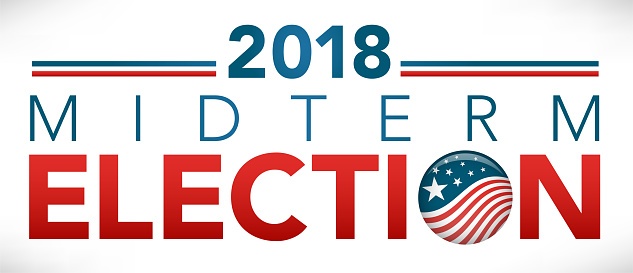November is just around the corner, and with it comes the 2018 midterm elections. Nearly three quarters of adults over age 50 are worried about how divided the country—and its citizens—has become, according to an AARP poll. Not only that, it seems older adults disapprove of the jobs our elected officials are doing, regardless of political party.
Need to know where to vote, register and your local issues?
Visit the Ohio Secretary of State’s website
What Issues Are Important to Older Adults?
Prescription Drug Prices
Despite the prescription drug benefit added to Medicare 12 years ago, prescription drug prices continue to climb. Sixty-six percent of respondents want to allow Medicare to negotiate directly with pharmaceutical companies for lower prices. According to AARP, the average cost a Medicare beneficiary pays for a prescription drug taken for a chronic condition is $13,000 per year. That’s more than three times the cost of what it was when the addition of a prescription drug benefit was added to Medicare in 2006.
A separate poll revealed that 80 percent of Americans feel Congress isn’t doing enough to lower prescription drug prices.
When evaluating candidates, consider their responses to these issues, recommends AARP:
- Do they support letting Medicare negotiate with prescription drug companies?
- Would they support a bill that got lower-priced generic drugs to market quicker?
- Should Americans be allowed to purchase safe, lower priced drugs from other countries?
- Would you require drug manufacturers to explain large price increases?
The New Tax Law
The new tax law passed earlier this year doesn’t bode well for older Americans. That’s because many of the provisions could lead to higher out-of-pocket costs and jeopardize SSI benefits, Medicare and Medicaid. Not only that, it puts funding at risk for programs that promote aging in place.
Just over half (52 percent) of the AARP’s poll respondents said the new tax law would hurt them, while 22 percent said it would benefit them, and 55 percent said they feel they won’t receive any benefit from the law.
Health Journalism notes that cuts to many programs can still be prevented. “Older adults, caregivers and advocates need to make their voices heard on the state and national level.” The potential for changes to our health system is very real, and a justification for cuts to Medicare down the road,” said Jennifer Goldberg, an attorney with the advocacy group Justice in Aging. “It’s important to understand the threats older adults face, not only now, but for at least the next decade.”
The Future of Social Security
The passage of the new tax law has led to increased concerns about the future of Social Security. Advocates are concerned with proposed cuts to the agency.
“What we continue to worry about is that the next shoe to drop will be Congress saying, ‘Now we have to look at Social Security and Medicare, because now we have this ballooning deficit,’ ” says Max Richtman, CEO of the nonprofit National Committee to Preserve Social Security and Medicare.
When evaluating candidates in the midterm election, consider their answers to the following, suggests the AARP:
- How would you improve service, either in-person or on the phone?
- Are you committed to having annual cost-of-living adjustments keep up with inflation?
- Would you raise the age for full retirement benefits?
- Would you raise the cap on payroll taxes?
- Where do you stand on disability benefits?











